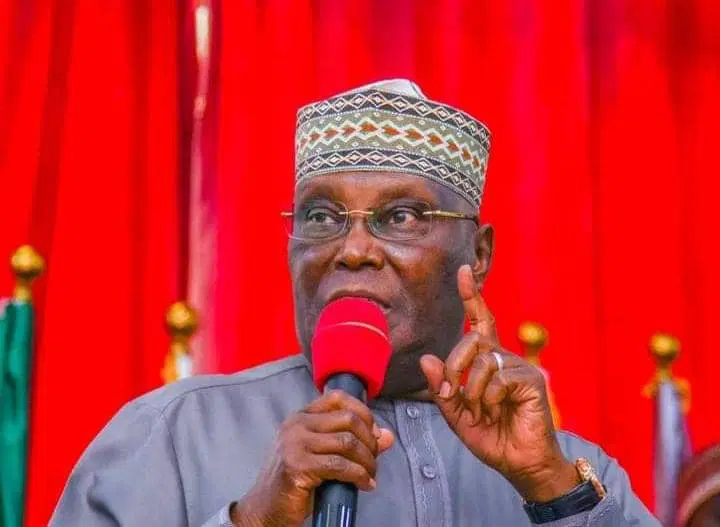Atiku’s Media Aide Accuses Tinubu of Favoritism Towards Christians, Sparks Religious Backlash

By Kamal Yalwa
July 26, 2025
A political storm is brewing following a controversial statement by Abdul-Aziz Na’ibi Abubakar, a media aide to former Vice President Atiku Abubakar, in which he accused President Bola Ahmed Tinubu of favoring Christians in key appointments across his administration.
In a widely circulated message, Na’ibi claimed that President Tinubu’s government has disproportionately handed top federal positions to Christians, despite running a Muslim-Muslim presidential ticket. He suggested that Muslims must “rise up and take over the country” from what he referred to as a “Christian government.”
The statement has sparked outrage and renewed religious tensions in the political space, with critics accusing Atiku’s camp of fueling division and promoting an anti-Christian agenda.
A counter-narrative has since emerged, highlighting the religious identities of high-profile Christian appointees under the Tinubu administration. The list includes:
- President of the Senate – Christian
- Secretary to the Government of the Federation – Christian
- Chief of Defence Staff – Christian
- Chief of Army Staff – Christian
- Chief of Naval Staff – Christian
- Inspector General of Police – Christian
- Minister of Finance – Christian
- Minister of Finance (State) – Christian
- Minister of Works – Christian
- Minister of the Federal Capital Territory (FCT) – Christian
- Minister of Interior – Christian
- Governor, Central Bank of Nigeria (CBN) – Christian
- Comptroller General, Nigerian Immigration Service – Christian
- Chairman, Federal Inland Revenue Service (FIRS) – Christian
- Minister of Aviation – Christian
- National Chairman of the APC – Christian
Observers note that the religious composition of Tinubu’s cabinet and appointees reflects a diverse, multi-faith balance—contrary to accusations of sectarian bias.
“This administration’s appointments are arguably among the most inclusive Nigeria has seen in recent years,” a political analyst commented. “To frame this as anti-Muslim or pro-Christian is disingenuous and dangerous.”
Meanwhile, the presidency has yet to issue an official response to Na’ibi’s remarks. However, civil society groups and interfaith organizations have urged political actors to refrain from incendiary language capable of destabilizing the country’s fragile unity.
Political tensions are expected to rise further as Nigeria edges closer to the 2027 general elections, with religion and ethnicity once again taking center stage in national discourse.



